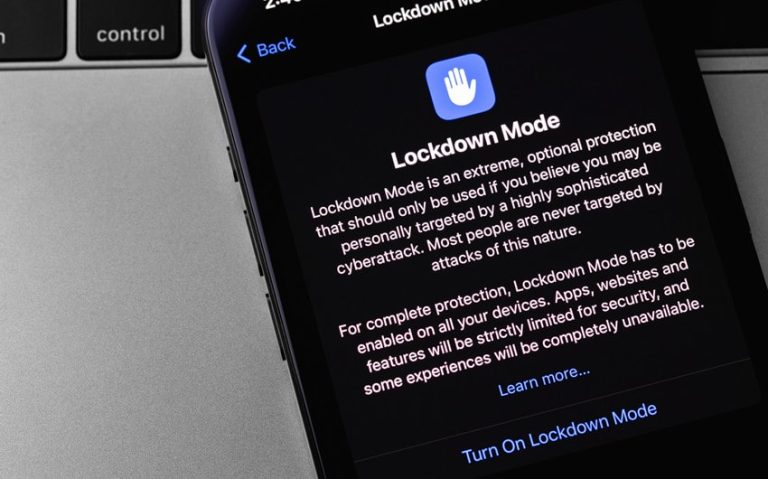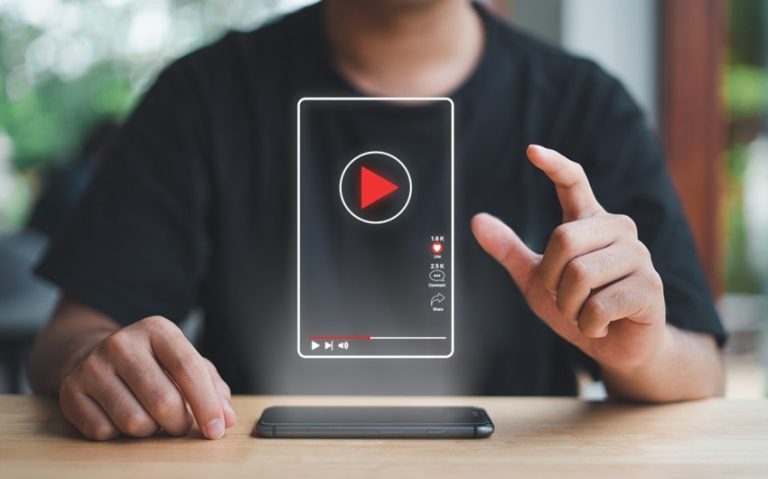7 Ways AI Voice Effects Can Help Podcasters Improve Their Audio Quality and Engagement
Podcasting has become one of the most popular forms of content creation, allowing individuals and brands to connect with audiences in a unique and personal way. However, maintaining high-quality audio and engaging listeners can be challenging. Fortunately, AI-powered tools like CapCut Online are revolutionizing podcasting, making it easier to produce professional-sounding audios with minimal effort.
From modifying voices to adding engaging sound effects, AI tools are transforming the industry. Here are seven ways AI voice effects can enhance podcasts and boost audience engagement.
1. Podcasters can experiment with different vocal tones
Using a voice changer, podcasters can modify their voices to create unique effects that align with their content. Whether it’s adding a robotic tone for a tech-focused episode or deepening a voice for dramatic storytelling, a voice changer helps diversify audio presentation. This is especially useful for podcasters who want to play multiple characters in a narrative show or add fun elements to their recordings.
By leveraging voice modification, podcasters can create a more immersive and entertaining listening experience. Additionally, experimenting with different vocal tones can help podcasters establish a signature style, making their show more memorable. A unique voice can enhance branding and make it easier for audiences to identify a particular podcast among many others.
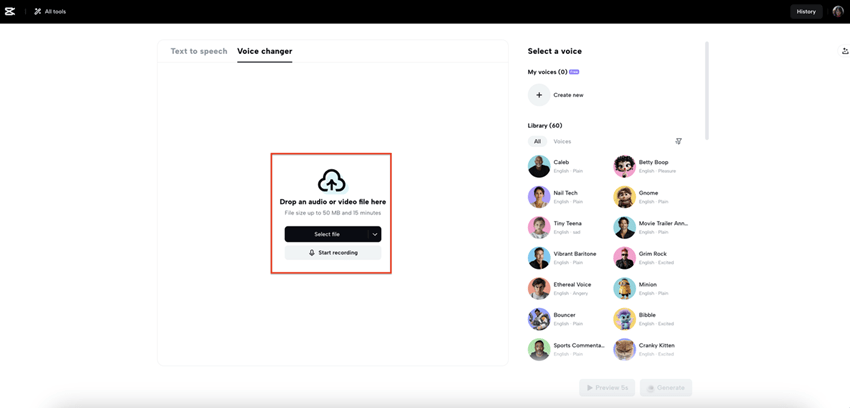
2. Podcasters can improve accessibility with text-to-speech
AI-driven tools like text to speech free services help authors who want to improve the accessibility of their blog posts convert them into podcasts, thus gaining access to a wider audience.. These tools convert written text into natural-sounding speech, allowing creators to generate voiceovers without the need for professional recording equipment.
Additionally, text-to-speech technology can assist podcasters with speech difficulties, enabling them to produce content seamlessly. Another advantage is that multilingual podcasters can use AI-powered text-to-speech to create voiceovers in different languages, helping them reach an international audience. This expands their listener base and improves content inclusivity.
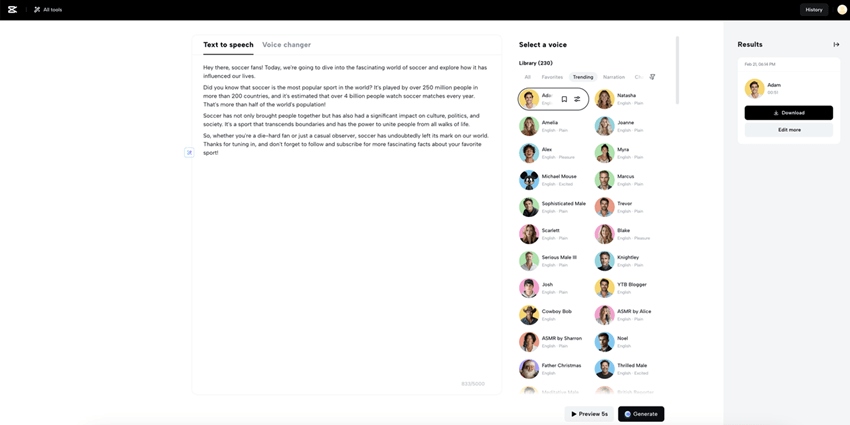
3. Podcasters can create engaging soundscapes effortlessly
Sound effects and background music are essential for making a podcast more engaging. With AI-powered tools, podcasters can automatically generate or enhance soundscapes without spending hours editing. AI can suggest appropriate sound effects, balance background music, and even fine-tune volume levels to ensure a polished final product.
By utilizing text-to-speech free tools, podcasters can also automate the addition of narrations or introductions, further streamlining production. This automation enables even solo podcasters to achieve a studio-like production quality without requiring a professional sound engineer.
4. Podcasters can generate automatic captions and transcripts
A crucial aspect of accessibility and audience engagement is providing captions and transcripts. With an AI caption generator, podcasters can automatically create accurate subtitles for their video podcasts or transcripts for their audio episodes. This feature is particularly beneficial for social media promotion, as video snippets with captions tend to perform better.
Additionally, having a transcript allows listeners to follow along visually, catering to different learning and listening preferences. Captions also help podcasters reach audiences who may be deaf or hard of hearing, making content more inclusive and accessible to all.
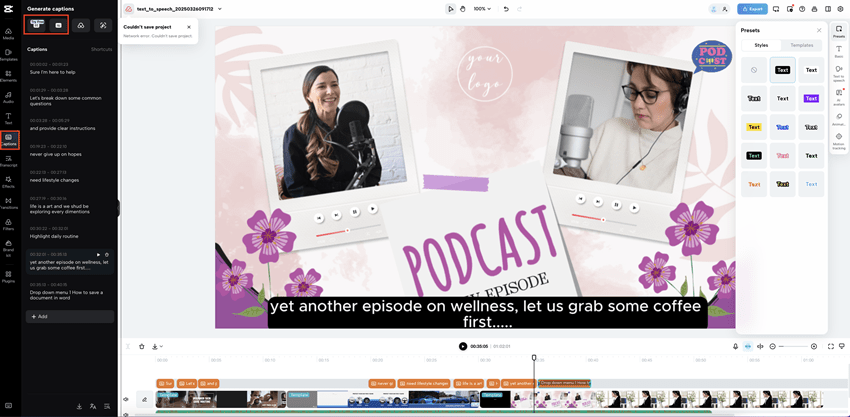
5. Podcasters can enhance voice clarity and remove background noise
One of the biggest challenges podcasters face is maintaining clear audio quality, especially when recording in less-than-ideal environments. AI-powered noise reduction tools can eliminate unwanted background noise, such as traffic sounds or keyboard clicks, ensuring that the primary voice remains crisp and professional.
AI voice filters can also enhance clarity by adjusting tone, removing echoes, and equalizing volume levels. This allows podcasters to deliver studio-quality audio without expensive equipment. Furthermore, AI tools can help balance multiple voices in interviews or panel discussions, ensuring all speakers sound equally clear and audible.
6. Podcasters can create personalized voice branding
Just like brands have visual identities, podcasters can develop a distinct audio identity using AI voice effects. By modifying voice styles, adjusting pitch, or incorporating signature sound effects, podcasters can create a unique audio brand that listeners instantly recognize.
AI tools help achieve consistency across episodes, ensuring that every episode of the podcast maintains the same professional sound. This can increase listener loyalty and make a podcast stand out in a crowded market. A well-branded voice can also open opportunities for monetization, such as collaborations and sponsorships with companies that align with the podcast’s niche.

7. Podcasters can streamline post-production and save time
Editing is one of the most time-consuming aspects of podcasting. Some AI tools can automate various editing tasks, such as removing filler words, adjusting pacing, and balancing audio levels. This significantly reduces post-production time, allowing podcasters to focus more on content creation. AI-driven software can also analyze episodes and suggest improvements, making it easier for creators to refine their storytelling and engagement strategies.
Additionally, podcasters can use AI to detect and remove long pauses or repetitive phrases, ensuring a more polished and engaging final product.
Conclusion
AI voice effects and tools like CapCut Online are revolutionizing podcasting, making it easier for creators to enhance their audio quality, improve accessibility, and engage their audience effectively. From using a voice changer to experiment with vocal effects, leveraging text-to-speech free services for voiceovers, and utilizing an AI caption generator for subtitles, podcasters now have access to innovative solutions that simplify content production.
As AI technology continues to evolve, podcasting will become more accessible and immersive, allowing creators to connect with their audiences in new and exciting ways. These advancements will also empower independent podcasters to compete with larger productions, ensuring that high-quality audio is no longer limited to those with big budgets.



